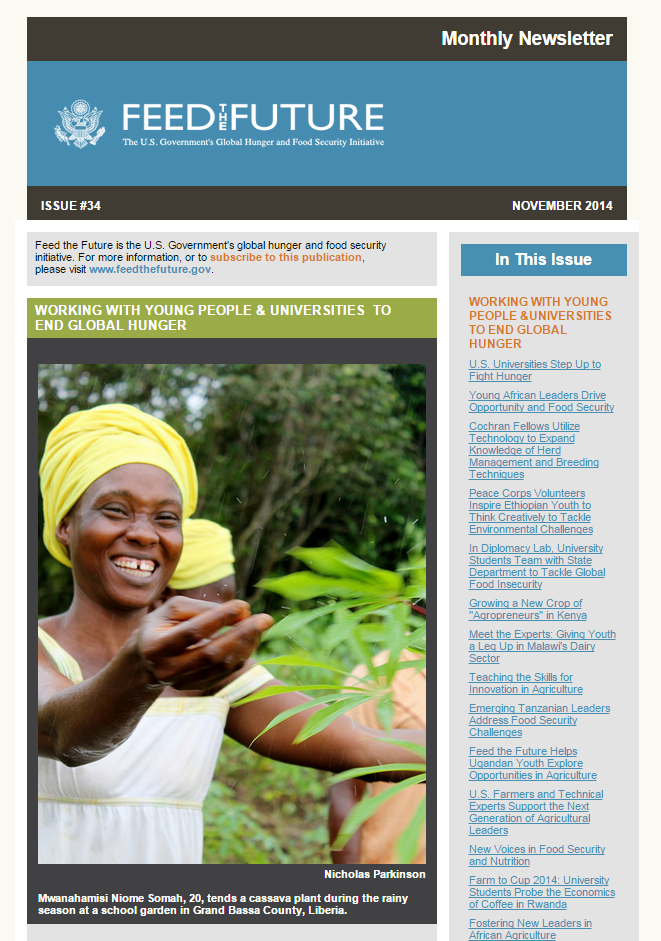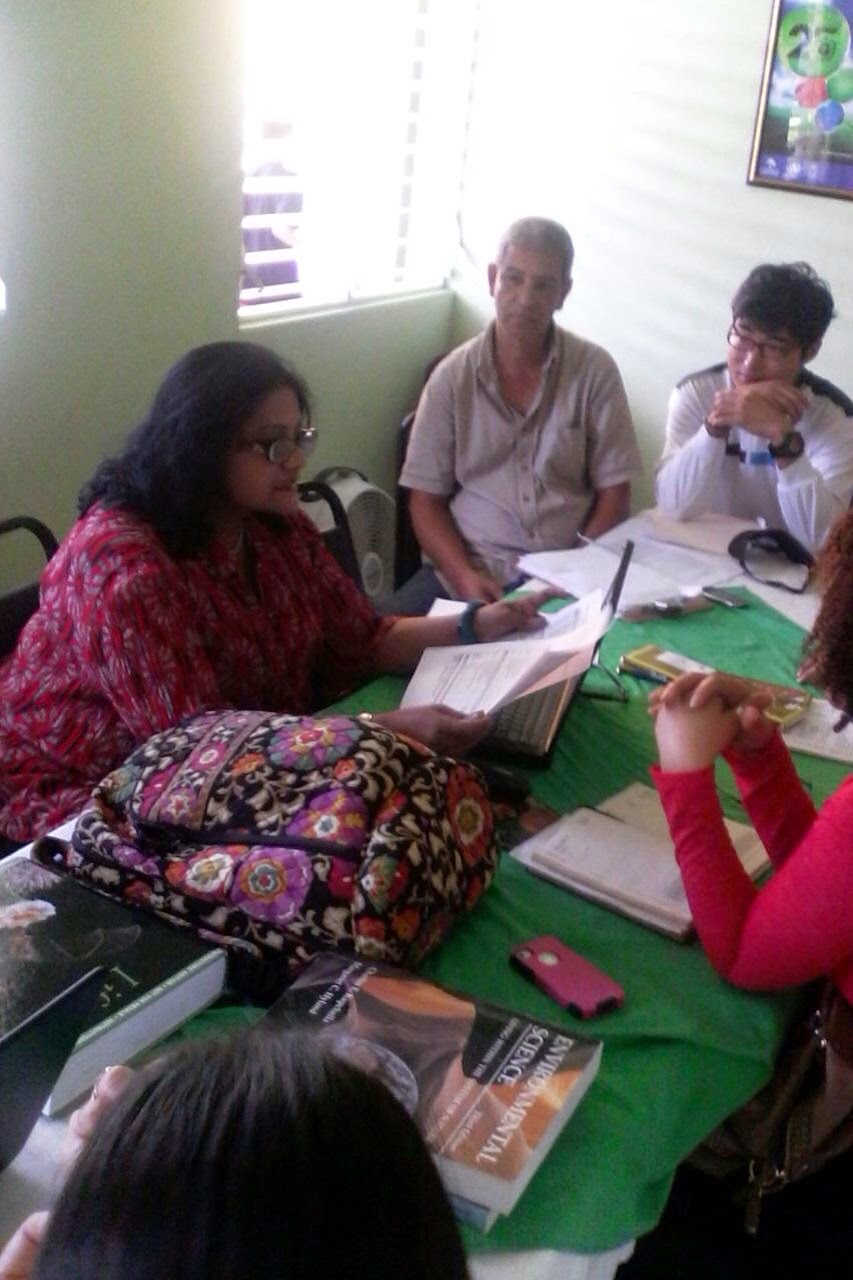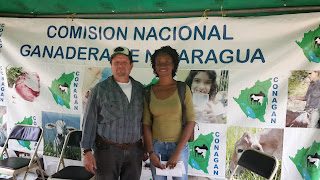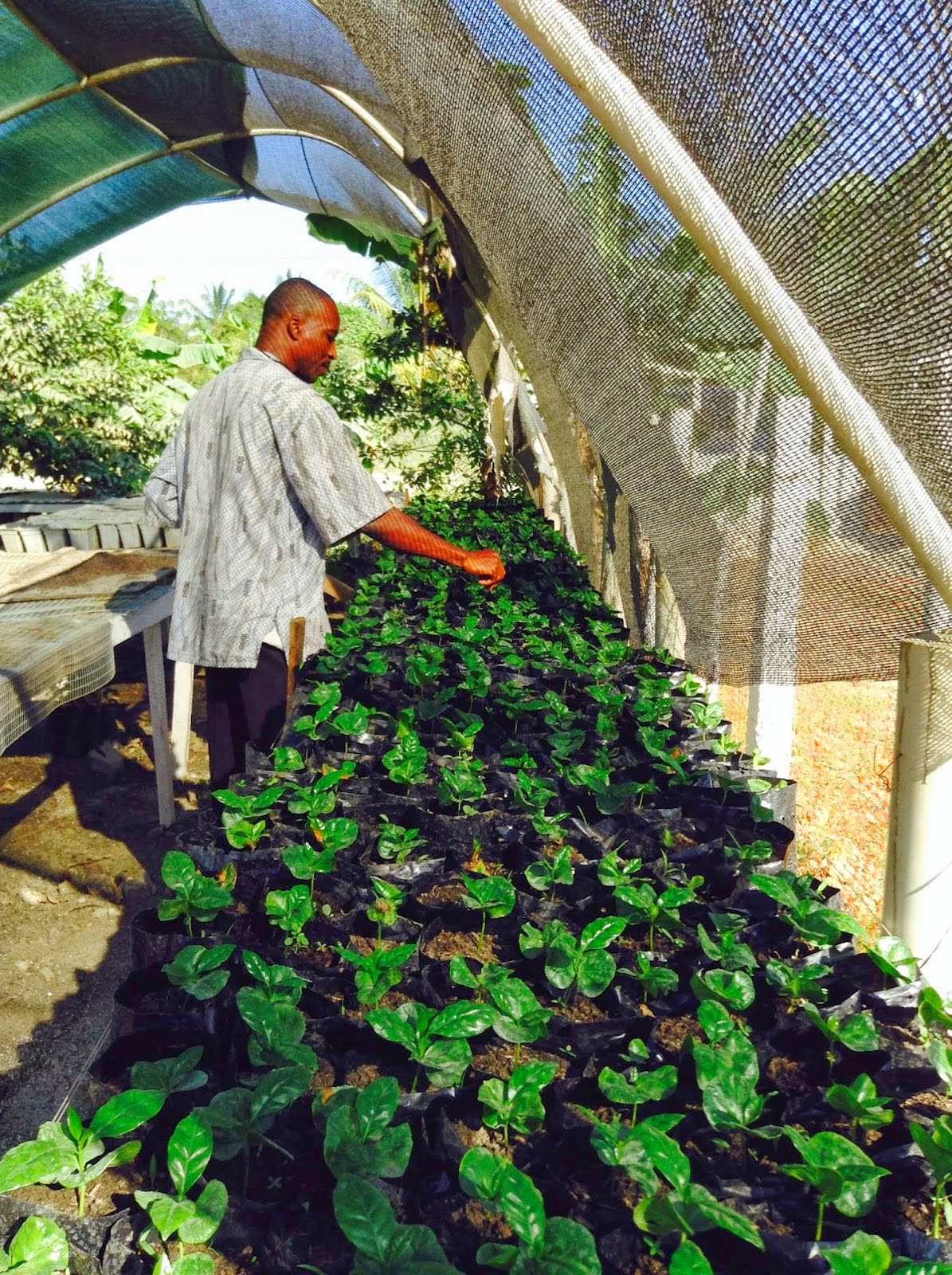Happy Thanksgiving from Partners' F2F Team!

Thanksgiving is traditionally a day to give thanks for the yearly harvest. Because of the hard work and dedication of our Farmer-to-Farmer volunteers and in-country staff and partners, rural farmers throughout Latin America are thankful for being able to take strides towards a higher quality and more productive harvest. The staff at Partners of the Americas would also like to extend its gratitude to its F2F volunteers, funders, and the Partners network for helping to change the lives of others. The Farmer-to-Farmer program is crucial for providing people-to-people exchanges and promoting sustainable economic growth and development. Whether our volunteers work with dairy farmers in Nicaragua, beekeepers in Haiti, mushroom exporters in Guatemala, or climate change NGOs in the DR, they all play a key role in helping us improve the lives and food security of others. Partners' HQ Farmer-to-Farmer Team From left, Courtney Dunham, Peggy Carlson (Director), Adriana Robertson, and




